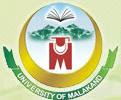Pastor Terry Jones of Dove World Outreach Church Florida
Pashtuns protesting against Koran burning in Peshawar
Sarah Palin condemned Koran burning
Alaska Governer Sarah Palin addressing a gathering at Washington DC & supporting building a mosque near Ground Zero
US Secretary of the State Hillary Clinton condemns Koran burning while at an Iftar
Pastor Jones abandoning plans to burn Koran
Anti-Burn Koran strike
Hollywood Star Angelina Jolie condemning Koran burning at an interview
Extremist Hindus who burnt Koran in 2005
US General Petraeus warned Koran burning could trigger hate for US Troops fighting against Terror
Hillary Clinton at Iftar party with Muslim community
The plans to burn the copies of the holy book Koran of Muslims were cancelled by Dove World Outreach Church of Florida to comemorate the Twin Tower Attacks on 9/11. But seperate incidents of Koran burning took place else where in USA.
PSF thanks Ms Sarah Palin for her personal interest in avoiding this ugly event!
(PSF UOM Media Cell)
The furor over pastor Terry Jones's plans to burn copies of the Koran, a grave insult to Muslims who believe it to be the literal word of God, overshadowed the lead-up to commemorations for the September 11 hijacked airliner attacks on the United States.
Ceremonies were held in the United States on Saturday to mark the ninth anniversary of the attacks by al Qaeda, which led to the toppling of the Taliban by U.S.-backed Afghan forces in late 2001 because the hardline Islamists had harbored Osama bin Laden's group.
Jones's plan and proposals to build an Islamic cultural center and mosque near the site of the toppled World Trade Center in New York highlighted a growing debate in the United States about religious tolerance.
Hundreds of people favoring and opposing the cultural center and mosque gathered in New York for peaceful rallies hours after ceremonies in the city - and in Washington and Pennsylvania - to mark the attacks that killed nearly 3,000 people.
Word of the intention to burn the Koran had already triggered outrage in Afghanistan and across the Muslim world.
President Barack Obama warned it could hurt the United States deeply abroad, endanger U.S. troops in Afghanistan and risk attacks in U.S. and European cities.
In Afghanistan, violence flared for the third straight day, angry protesters chanting "Death to America" and "Death to Christians" before clashing with security forces in Logar province, south of the capital.
Three demonstrators were wounded, one seriously, when Afghan security forces opened fire to disperse hundreds of protesters marching to Pul-e-Alam, the capital of Logar province, said Din Mohammad Darwish, the provincial governor's spokesman.
The protesters threatened to attack foreign military bases. There are almost 150,000 foreign troops fighting a growing Taliban-led insurgency in Afghanistan, where violence is at its worst since the hardline Islamists were ousted.
"The governor must give us an assurance that the church is not going to burn the Koran, otherwise we will attack foreign troop bases in our thousands," protester Mohammad Yahya said.
Major Patrick Seiber, a spokesman for the NATO-led International Security Assistance Force in Afghanistan's east, said ISAF was aware of more protests in Logar on Sunday, but put the crowd at about 100, some wielding sticks and throwing stones.
Four demonstrators were wounded in Logar on Saturday, a day after a protester was shot dead when an angry crowd attacked a German-run ISAF base in Faizabad in northeastern Badakhshan province, one of many protests across the country.
Protests had eased later on Sunday, but could spark up again as news filters through of reported desecrations of the Koran in the United States.
While Jones abandoned his plan, there were at least two incidents of abuse of the Koran in Lower Manhattan in New York on Saturday. Two evangelical preachers not affiliated with any mainstream church burned two copies of the Koran in Tennessee.
Protests over perceived desecration of Muslim symbols have led to dozens of deaths in Afghanistan in recent years, including after a Danish newspaper published a cartoon depicting the Prophet Mohammad in 2005.
On Thursday, the United Nations' top diplomat in Afghanistan said the protests risked delaying Afghanistan's September 18 parliamentary election.
The election is seen as a key test of stability in Afghanistan before Obama conducts a strategy review of the increasingly unpopular war in December.
Obama, who has sought to improve ties with the Muslim world frayed by wars in Iraq and Afghanistan since the September 11 attacks, stressed religious tolerance in remarks at a memorial service in Washington on Saturday.
(Additional reporting by Basil Katz and Edith Honan in NEW YORK, Kevin Gray in GAINESVILLE, Pascal Fletcher in MIAMI and Hamid Shalizi and Tim Gaynor in KABUL; Editing by Ron Popeski)
REUTERS


